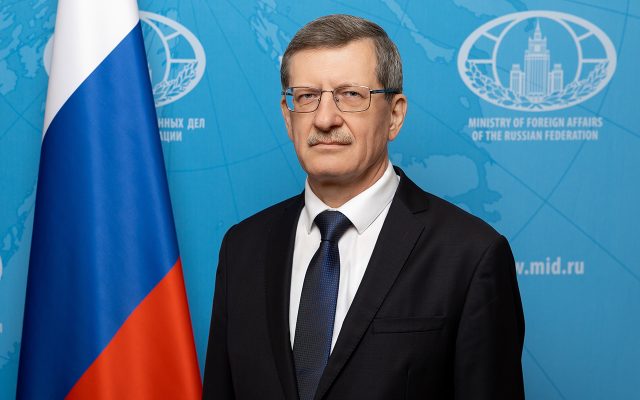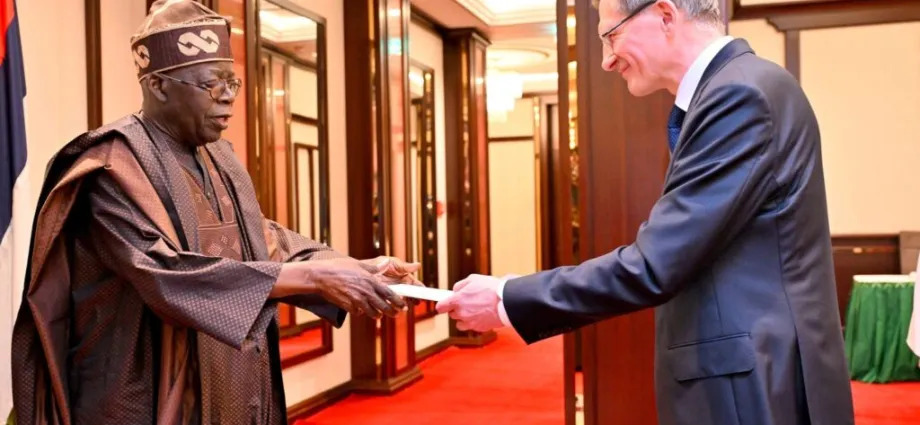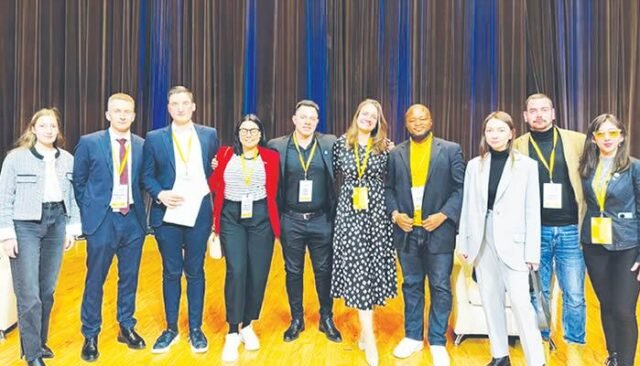In a new diplomatic move aimed at deepening educational and economic bonds, Russia has announced 220 fully funded scholarships for Nigerian students for the 2025 academic session. The announcement was made by Russian Ambassador to Nigeria, Andrey Podelyshev, during a press briefing in Abuja on June 10, 2025.
These scholarships are part of a broader, long-term initiative by Russian President Vladimir Putin to raise the number of international students in Russian universities to 500,000. Presently, around 32,000 African students—which include approximately 2,000 Nigerians—are enrolled in Russia, and the new allocation will formally begin in September for the upcoming academic year.

A Comprehensive, Fully Funded Package
What distinguishes this offering from past scholarship schemes is the comprehensive grant package. It covers not only tuition but also accommodation, stipends, and travel expenses for selected students—an upgrade that compensates for Nigeria’s recent suspension of transport and housing grants for foreign scholars.
Ambassador Podelyshev explained that the revamped grant aligns with Nigeria’s financial constraints and ensures that deserving students get full support. “These scholarships will include tuition, living expenses, and travel support,” he emphasised.

Strategic Education for Strategic Cooperation
This educational initiative is far more than an academic opportunity—it represents a calculated investment in the future of bilateral cooperation. Russia envisions a generation of Nigerian professionals trained in fields like nuclear energy, metallurgy, and industrial engineering who can return home and contribute to joint economic ventures.
The Intergovernmental Commission on Economic, Scientific, and Technical Cooperation will play a central role in aligning these scholarship programs with larger-scale infrastructure projects, such as the proposed revitalisation of the Ajaokuta Steel Complex and developing nuclear energy facilities in Nigeria.
A key talking point of the announcement was preventing brain drain. Ambassador Podelyshev made it clear that students would return to Nigeria equipped to fill niche roles in bilateral projects. “If students know they are being trained for specific national projects… they will have stronger incentives to come back,” he said.
Russia’s Soft Power Strategy in Africa
This move is part of a larger campaign by Moscow to enhance its soft‑power footprint across Africa. Similar efforts are underway in other African countries, where Russia is increasing scholarships across disciplines, mirroring Cold War-era strategies aimed at building long-term influence.
In 2020, Russia offered 15,000 scholarships to African students—far more than Western alternatives like the UK’s Chevening or the US Fulbright schemes, which typically provide only a few thousand slots. Today’s announcement signals a continued acceleration of that trend, underscoring Russia’s intent to build lasting educational and diplomatic bridges across the continent.
The scholarships are also designed to strengthen people-to-people ties. By training African students in Russian institutions, Moscow is cultivating a generation of leaders who are not only technically competent but also culturally attuned to Russia’s perspectives and values. This duality—technical expertise and ideological affinity—is central to Russia’s broader vision for strategic influence in Africa. Nigerian students returning from these programs may also become informal ambassadors of Russian education and technology, further embedding bilateral cooperation within domestic industries.
Looking Ahead
Implementation is already underway. The 220 scholarships approved in 2024 will be awarded for the 2025 intake, and students are expected to travel to Russia by September. Preparations include refining logistical support, cultural orientation programs, and ensuring alignment with Nigeria’s national development targets. Russian universities are also reportedly expanding language assistance and academic support to ease integration.
For Nigerian youths seeking quality education abroad—and for policymakers aiming to enhance local technical capacity—this initiative marks a timely opportunity. The dual focus on comprehensive funding and return-driven training reflects a mature, strategic outlook on educational diplomacy.
Join Our Social Media Channels:
WhatsApp: NaijaEyes
Facebook: NaijaEyes
Twitter: NaijaEyes
Instagram: NaijaEyes
TikTok: NaijaEyes
READ THE LATEST EDUCATION NEWS








































